Dear Readers,
When you hear the name BERNINA, most of you probably think of sewing machines. At least those of you who live in Germany or Austria. In Switzerland, things are a little different. It is true that our brand is synonymous with sewing machines in this country. However, it shares its fame with the Piz Bernina, the highest mountain in the canton of Graubünden.
Katharina Ueltschi, the daughter of our company owner Hanspeter Ueltschi, has now climbed this mountain, a four thousand meter giant that towers over the surrounding mountains.
Like her brother Philipp, who is driving digital transformation in Steckborn, Katharina is a member of the BERNINA Executive Board. She manages the distribution of our products in Singapore. Katharina’s goal is to establish BERNINA as a brand for the home sewing lifestyle in Asia. She runs a concept store in Singapore, trying out innovative sales models, such as short-term retail stands in shopping centers – so-called pop-up stores – and online sales. She also develops courses and concepts in the field of education and training.
As you can see, Katharina is not lacking either in ambition or responsibilities.
I hope I am not taking too much of a professional risk by saying that her mountaineering skills are not as well developed.
A serious challenge
The Piz Bernina is not an easy climb. For a long time, mountaineers thought it was unconquerable. It was not until 1850 that a rope team risked their lives to climb to the summit. Johann Wilhelm Fortunat Coaz, who led the group, wrote in his diary: “At 6 o’clock in the evening, we stood on the sublime, coveted peak on pure ground untrodden by any human being, at the highest point in the canton. We felt very solemn.” Take note: it was already evening! The descent took place at night. At the time, there was no question of sleeping on the mountain.
Katharina Ueltschi decided to take on this peak measuring over four thousand meters. She was in shape, had been running several times a week and had completed glacier and climbing training. She was very motivated. Katharina was following in the footsteps of her mother and grandmother, both of whom stood on the summit:
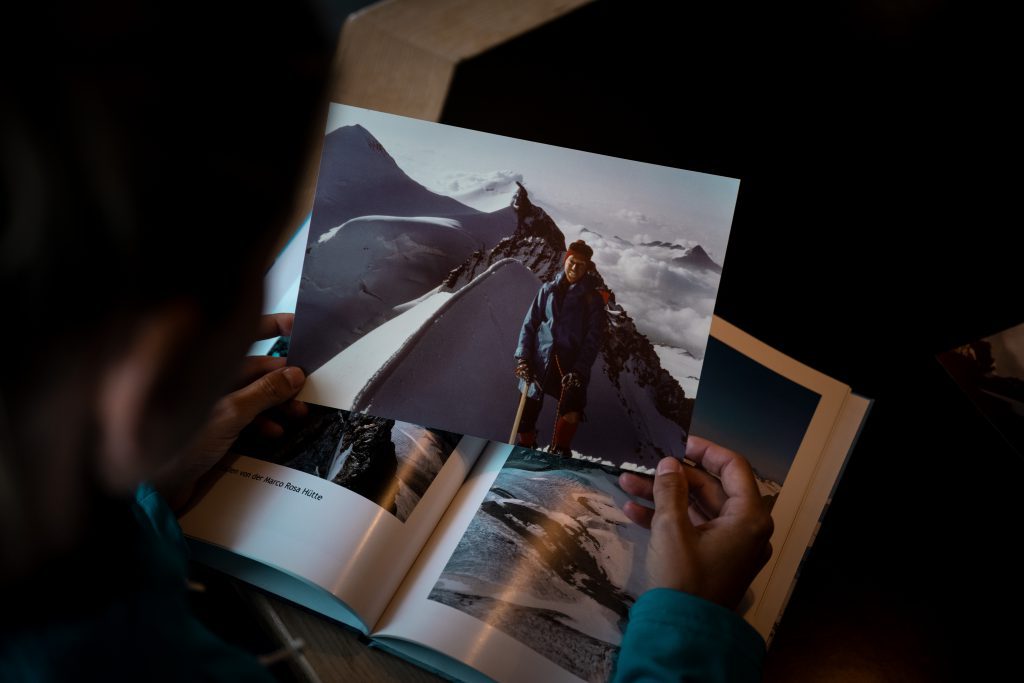
A look into the family album: Odette Ueltschi, Katharina Ueltschi’s grandmother, stood on the Piz Bernina.
One minor detail: Katharina did not have any mountaineering achievements comparable to climbing the Piz Bernina. She did her running training in Singapore at sea level. So she would be going from zero to 4050 meters above sea level. Obviously with an appropriate acclimatization phase. And also with professional support from an experienced mountain guide. But still very quickly. Could she do it?
Looking back
First, a look back into the history book: How did our sewing machines come to be named after the Piz Bernina?
Our company was founded in 1893 by Karl Friedrich Gegauf, the inventor of the hemstitch sewing machine. The company and products were simply called “Gegauf” or “Gegauf Brothers”. The machines were very plain. Karl Friedrich targeted them to commercial customers in the textile industry, which was flourishing at the time.
After the death of Karl Friedrich, his son Fritz, who was also technically gifted like his father, took over the management of the company together with his brother Gustav. It was renamed “Gegauf’s Sons”.
In the years after the First World War, the company experienced difficulties. The global economic crisis and the upheavals in the textile industry created challenges for the business model. Hemstitching was no longer in vogue. The diversification into other business areas, including the production of can openers, which Fritz personally sold in Paris, was not successful.
In this crisis situation, in conjunction with an engineer from St. Gallen, Fritz developed our company’s first household sewing machine, the “Class 105”. In doing so, he made a radical change in strategy, aiming at a new target group. The customer was no longer the textile industry, but private individuals. For example, Ms. A. E. from Wädenswil, who is quoted in the flyer below as saying: “I sew silk, linens, boys’ shorts and even leather for school satchels without any problems, I also mend silk stockings and darn linens with great pleasure.”
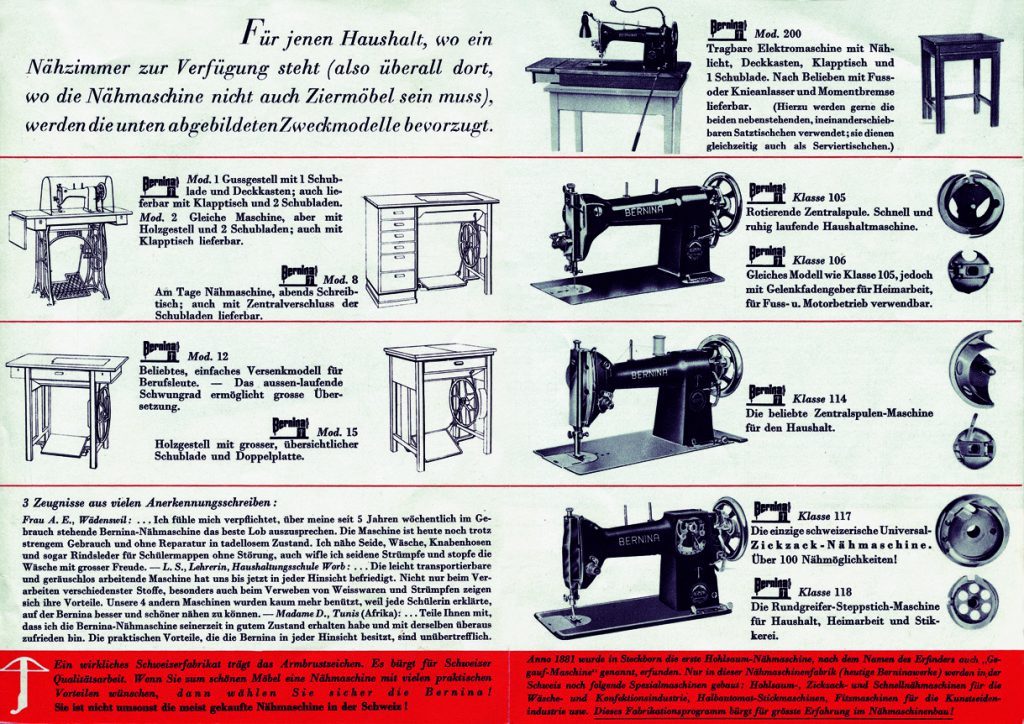
An advertising flyer for the first BERNINA (Class 105) and its successor models, Classes 106, 114, 117 and 118.
A name was needed for this miracle machine that made darning linens fun and was intended to secure the future of the company. Something with a ring to it. Fritz wanted to create effective advertising.
Back then, the Gegauf family enjoyed spending their holidays in the Engadine valley, a high valley in the canton of Graubünden. You can imagine Fritz taking a deep breath of crisp, fresh mountain air, gazing out over the panorama of the Bernina and Silvretta mountain chains and suddenly having a flash of inspiration: I’ll call my new machine BERNINA!
The name symbolized Swiss quality, robustness and peak performance. The intention was that the BERNINA should stand out among other sewing machines as dominantly as the Piz Bernina towered over the surrounding mountains.
The name was also easy to pronounce in all the Swiss national languages. In English-speaking countries too, “Burnina” rolls nicely off the tongue. It is said that Fritz was thinking about the world market as early as 1932. And he was right: the BERNINA Class 105 was a great success. It formed the cornerstone of our brand and shaped the history of our company.
An extreme experience
For Katharina Ueltschi, Fritz’s great granddaughter, the Piz Bernina initially meant great physical and mental exertion. Via Pers Glacier and the Fortezza Ridge, she reached the Bellavista glacial plateau. This involved going past glacial crevasses and ice falls. And climbing over rocky outcrops. After a stop at the Marco e Rosa Refuge to refuel with a portion of penne, the climb became a truly extreme experience. The last 420 meters of altitude really pack a punch.
The route led over the glacier and a steep snowy slope up to the first rocks of the Spalla Ridge. Katharina battled with the altitude and fatigue. Fear was never far away. “My life flashed before me like a movie.” On the narrow snowy ridge, she had to muster all her courage, putting one foot in front of the other, eyes fixed on her shoes, not looking to the left and or the right. Those were difficult minutes. Katharina wanted to turn back and was at her breaking point. But ultimately she made it successfully. She conquered the Piz Bernina.
You can follow the experience in an impressive video produced by Switzerland Tourism (click on the “closed captions” icon to activate English subtitles):
At this point, I would like to say a big thank you to the Switzerland Tourism team who produced the fantastic shots – including the photos in this article – thereby enabling us to experience the ascent.
And many congratulations to Katharina Ueltschi! She had to push herself to the limit on the Piz Bernina. Her experience of reaching the summit must have been all the more beautiful. I am sure it will inspire her to further outstanding achievements, maybe not on a mountain, but definitely at BERNINA.
Kind regards,
Jasmin
PS: Attentive readers may have noticed that, in the historical advertising brochure shown above, the invention of the hemstitch sewing machine is dated to 1881. It says: “The first hemstitch sewing machine was invented in Steckborn in 1881, called the “Gegauf machine” after its inventor.” We think someone is making themselves older than they really are. Perhaps it should say 1891 and the typesetter accidentally reached into the box of eights twice. In any case, the commercial register of the canton of Thurgau states that Johann Georg and Friedrich Gegauf entered into a general partnership in Steckborn on November 19, 1890. A first patent for a hemstitch sewing machine was registered by Karl Friedrich Gegauf on February 27, 1892. A further patent for an improved model was granted to the Gegauf brothers on September 1, 1893. This is the basis we use when we quote 1893 as the birth year of the company BERNINA.
 BERNINA Corporate Blog -
BERNINA Corporate Blog -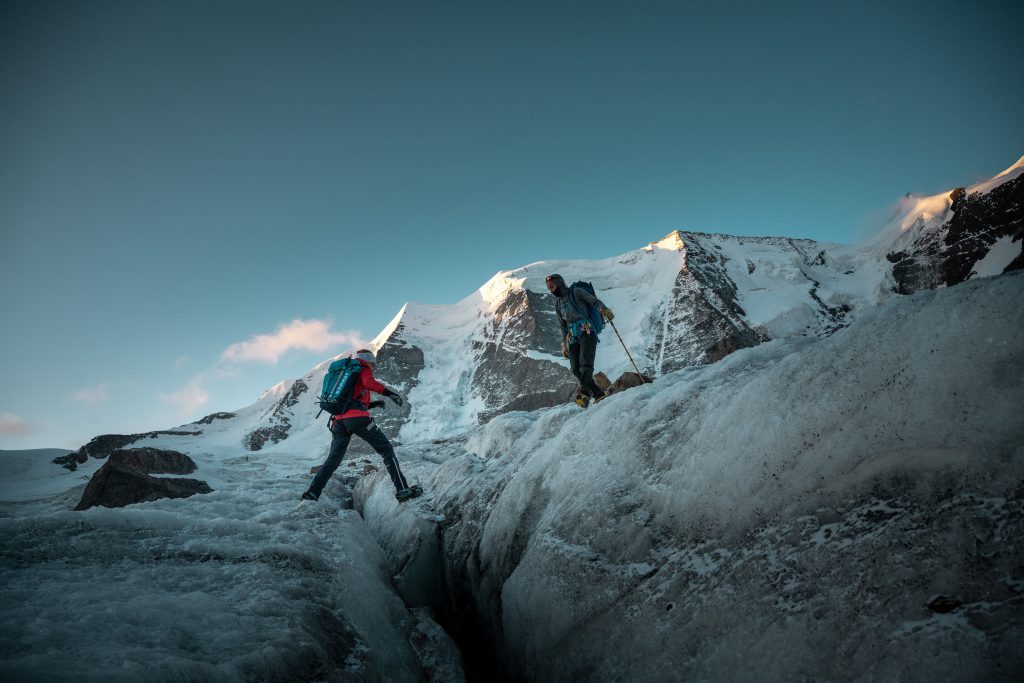
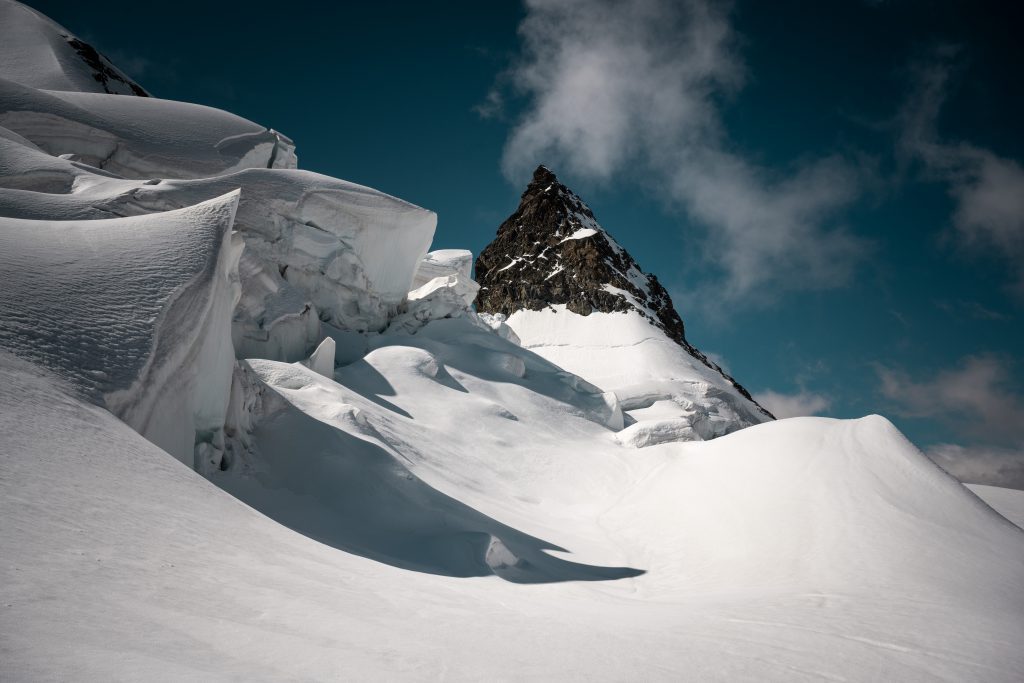
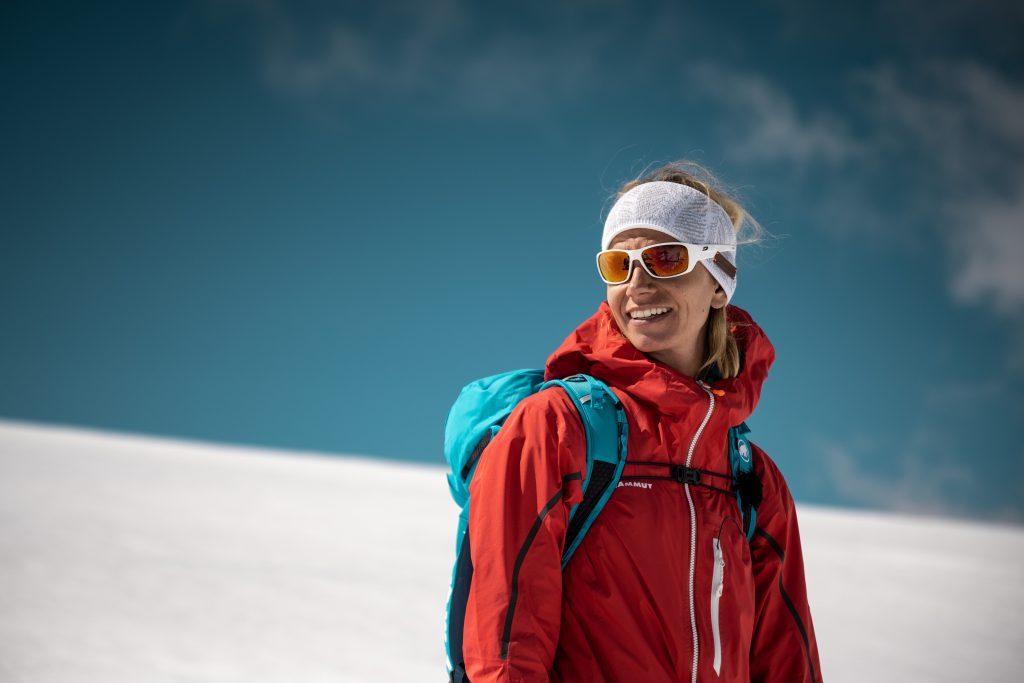
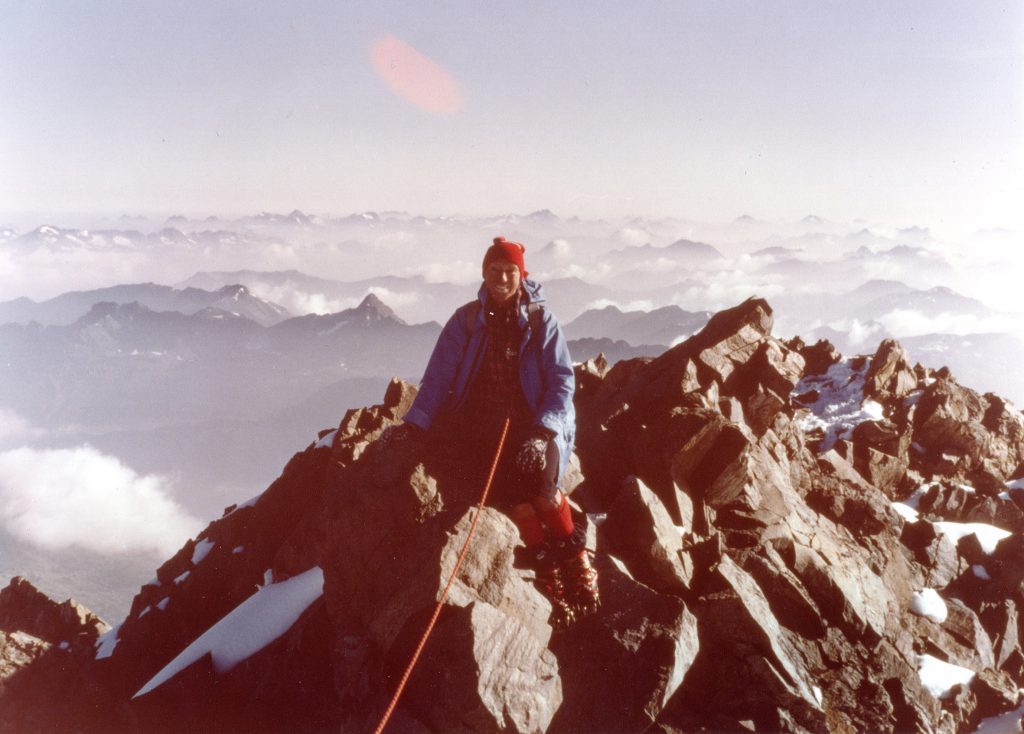
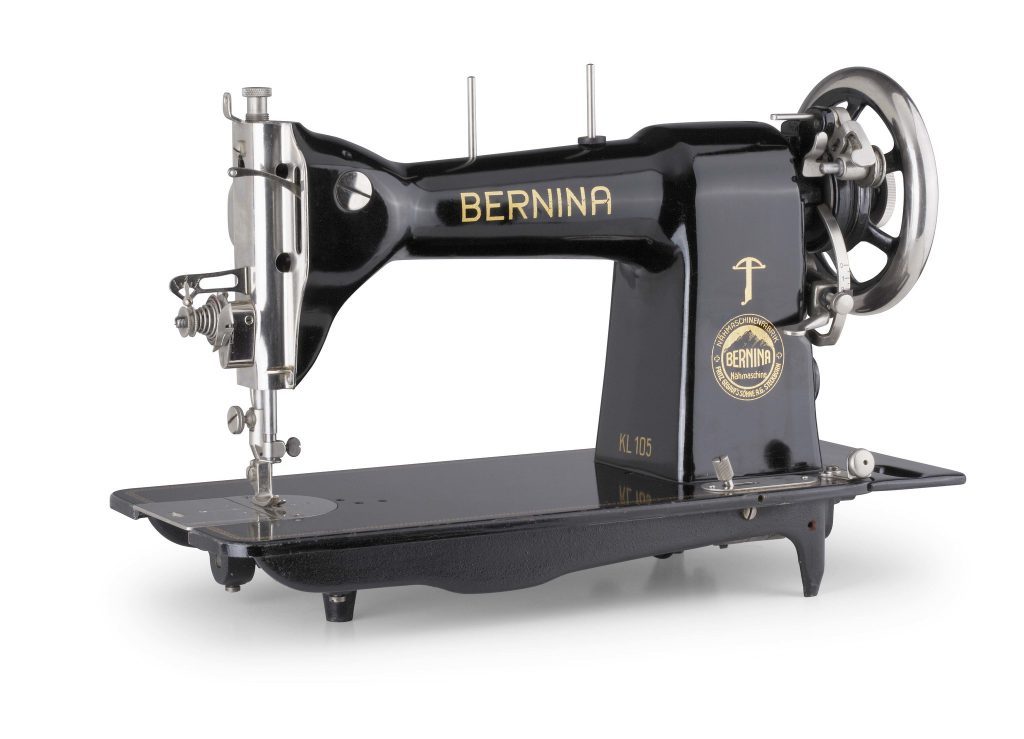
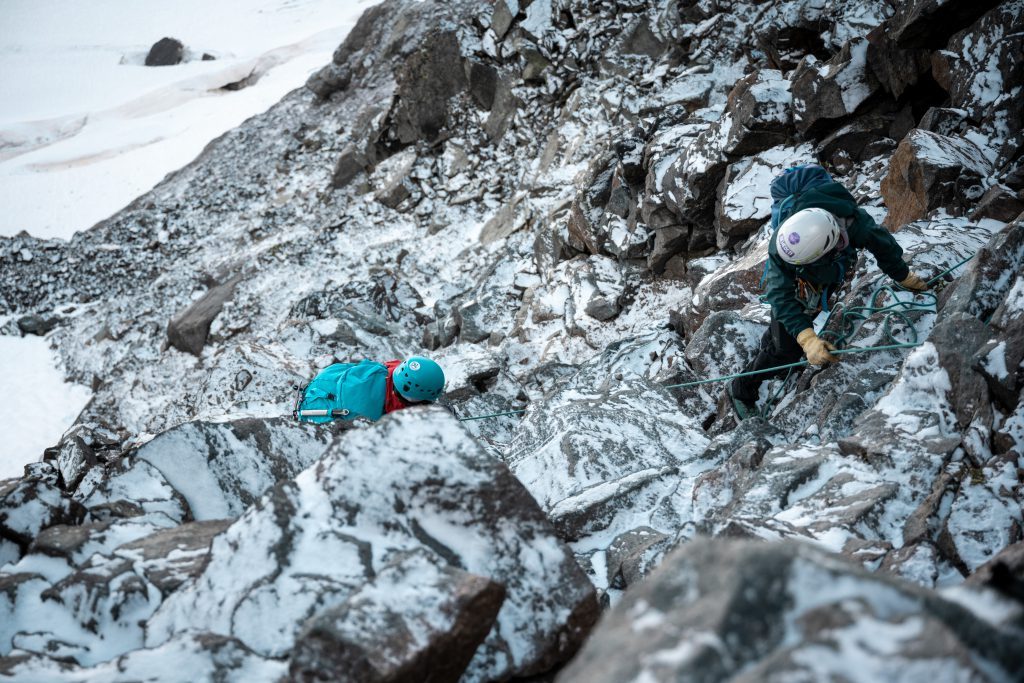
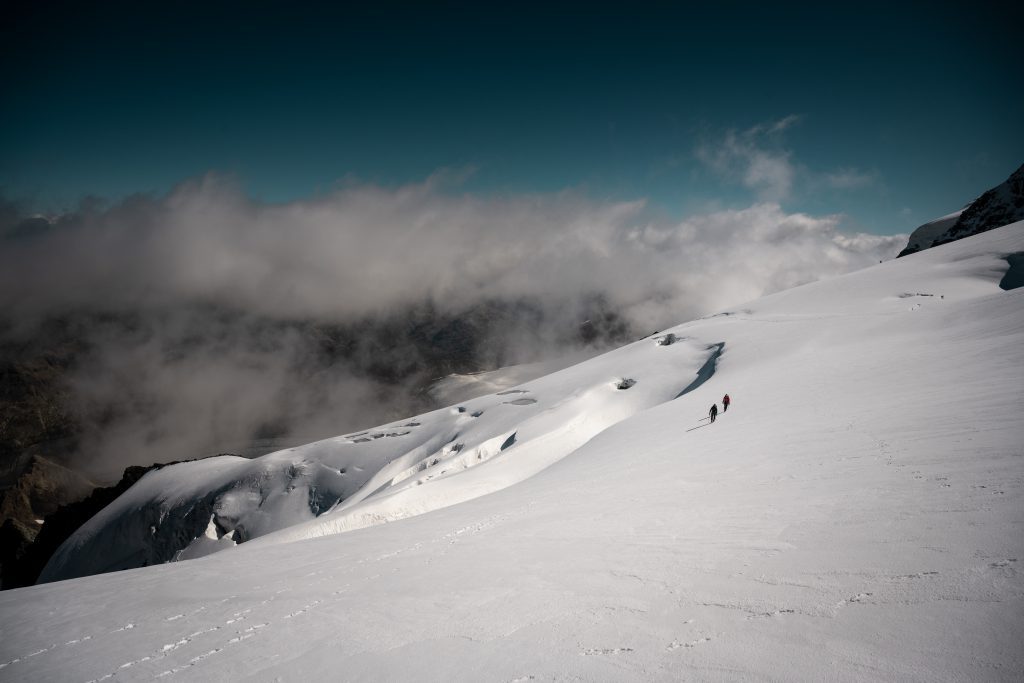
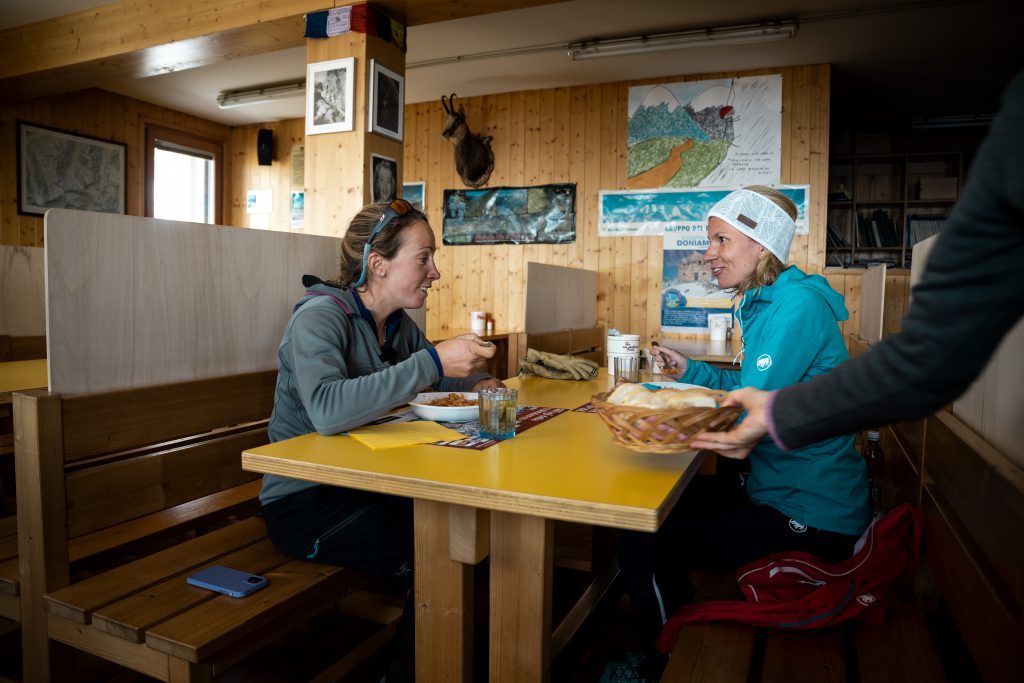
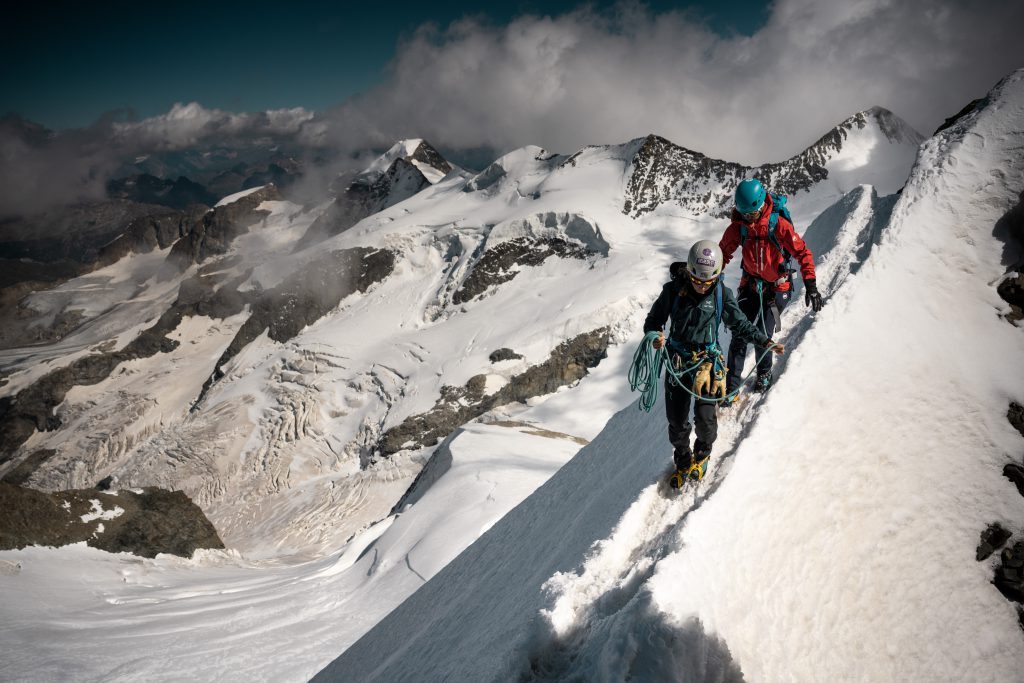
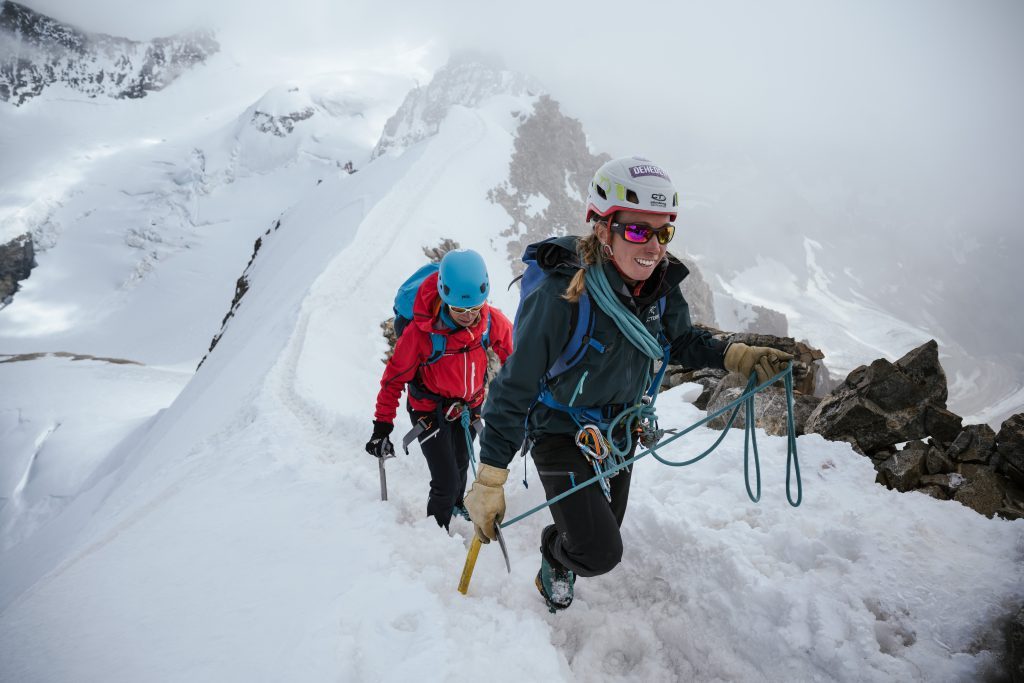

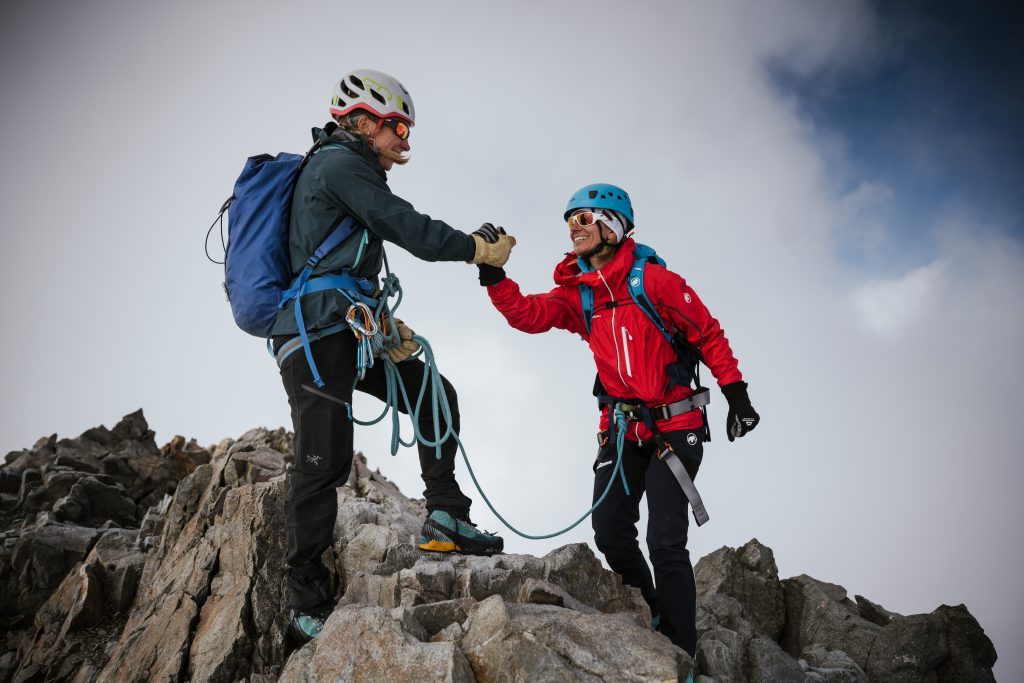
The excellent do you doing work. Congrats. Iam so happy 😊!
As one who has hiked many peaks & “high points” in US, I very much appreciate the efforts necessary to climb although I never experienced any peaks as this. I know the feeling of wanting to turn back and of exhaustion, both disappear when achieving your goal. Well done to you Katarina.
Well done !!!great article with lively photos .